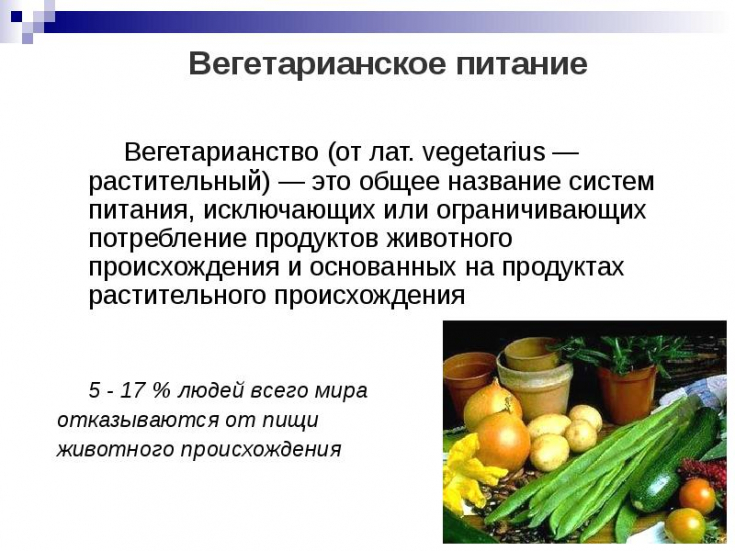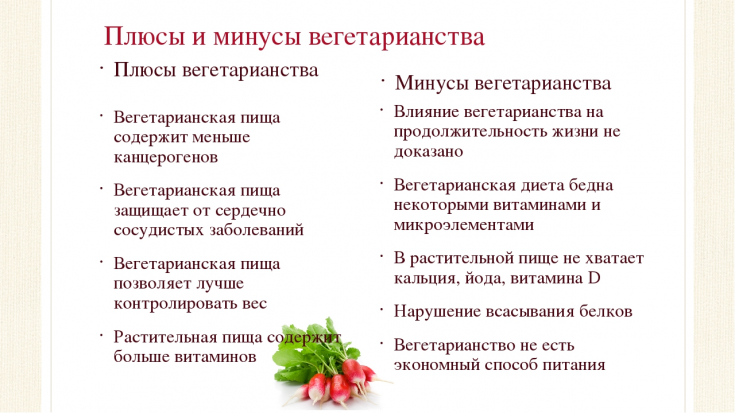Well-planned vegetarian diets based on a varied, plant-based diet can provide adequate nutrition throughout all life stages, including pregnancy, breastfeeding, breastfeeding (birth to 12 months) and childhood (1 to 18 months). years).
With the rapid growth in popularity of vegetarian diets, healthcare professionals need to be aware of the benefits of a nutritious vegetarian diet in order to properly counsel their patients.
Find out in the article on estet-portal.com what should be the diet during pregnancy if vegetarianism is observed.
Vegetarian Diet Studies during Pregnancy
The Scientific Society for Vegetarian Nutrition − SSNV reviewed information on vegan diets in pregnancy and lactating women, infants and children to summarize the most relevant recommendations for proper nutrition for these patients depending on their age and condition.
Follow us on Instagram!
Despite the fact that vegetarianism has many dietary restrictions, it includes a wide variety of foods: grains, legumes (including soy and its derivatives), vegetables, fruits, nuts and seeds, vegetable fats, herbs and spices.
What is the danger of migraine during pregnancy
Criteria for a balanced diet for vegetarians during pregnancy
Concern about a vegetarian diet during pregnancy, breastfeeding, infant and childhood arises because the criteria for a balanced vegetarian diet are not met:
1) Eating a variety of plant-based foods in large quantities, emphasizing the consumption of raw or minimally processed foods.
Restrict plant fiber only during late pregnancy, infancy and early childhood due to its ability to reduce the absorption of certain nutrients.
2) Restrict vegetable fats in the diet to reduce nutrient displacement and reduce food caloric intake as suggested by The Dietary Reference Intakes.
3) Do not consume trans fats and tropical oils (coconut, palm and palm kernel). The exception is the period of the first year of life and early childhood, when it is recommended not to limit the amount of fat and carefully approach their choice.
4) Eat enough calcium, which is also found in plant foods.
5) Use the recommended amounts of vitamin B12.

Vegetarianism during pregnancy: how to avoid deficiency conditions
Following a vegetarian diet during pregnancy and lactation, you can satisfy the body with all the necessary nutrients. A plant-based diet during pregnancy may prevent the development of preeclampsia and pre-pregnancy obesity. Vegetarianism may also protect the fetus from diseases such as diabetes and neural tube defects.
Physiological and pathological skin changes during pregnancy
Vegetarian nutrition easily covers high protein requirements even during critical periods of life. Protein-rich foods include beans, grains, nuts and seeds, green leafy vegetables, soy products, and tofu.
Soya and its derivatives, pseudo-cereals (buckwheat, quinoa, amaranth), lupine, spinach contain all the essential amino acids in a proportion similar to food of animal origin.
However, the presence in plant foods of factors that impede the absorption of nutrients and fibers is the reason for the low digestibility of plant proteins (on average & minus about 85%), therefore, during pregnancy and lactation, during infancy and childhood, protein intake should be increase.
Protein intake should be increased by 10% on vegetarian diets during pregnancy and for breastfeeding, by taking protein-rich foods, especially in the 2nd and 3rd trimesters of pregnancy and during breastfeeding.
The effect of vegetarianism on skin condition
Breast milk or formula − good source of protein during the first 12 months of life. With the beginning of the introduction of complementary foods (6 months), an additional intake of this substance into the child's body begins. Babies whose parents are vegetarian are advised to use only adapted infant formula, such as soy milk. The use of homemade mixtures based on plant-based milk and grains is not recommended, as this can lead to problems with the gastrointestinal tract in a child. After the full introduction of complementary foods, from the age of 1 year, a rational vegan diet adequately provides the protein needs of the child's body.

Vegetable fiber, which is supplied in greater quantities with vegetarianism, reduces the calorie content of food and therefore it is recommended to reduce the intake of foods that contain a lot of fiber during pregnancy, the first year of a child's life and early childhood. On the other hand, moderate consumption of foods high in fiber enriches the intestinal microflora and thus helps to fight constipation, which is very common for women during pregnancy.
Urinary tract infections during pregnancy: evidence-based medicine
A woman who eats a well-planned vegetarian diet has the proper composition of breast milk to meet the baby's essential nutrient needs. Children who eat plant foods have a lower risk of developing obesity. They are also immune to the negative effects of veterinary antibiotics found in animal foods and show a favorable anti-inflammatory adipokine profile.
Fluconazole during pregnancy: a hidden danger







Add a comment